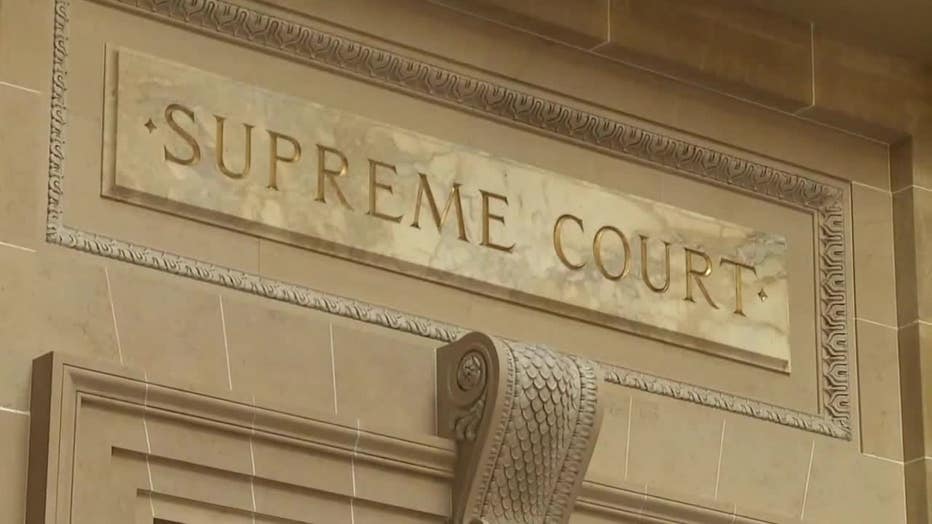1849 abortion ban; Wisconsin's high court hears oral arguments

1849 abortion ban; SCOWIS hears arguments
The Wisconsin Supreme Court is weighing the future of abortion. On Monday, Nov. 11, the state justices heard oral arguments on a case that's been working its way through the courts for two years.
MADISON, Wis. - The Wisconsin Supreme Court is weighing the future of abortion.
On Monday, Nov. 11, the state justices heard oral arguments on a case that's been working its way through the courts for two years.
This 2024 case dates back to 2022 when the US Supreme Court reversed the national Roe v. Wade decision.
SIGN UP TODAY: Get daily headlines, breaking news emails from FOX6 News
At that time, both sides said a Wisconsin state law from 1849 sprung back to life and Wisconsin's abortion providers stopped doing them.
That law states: "Any person, other than the mother, who intentionally destroys the life of an unborn child is guilty of a class H felony."
Democratic Attorney General Josh Kaul filed a lawsuit challenging the law in 2022. He argued that a 1985 Wisconsin law that allows abortions before a fetus can survive outside the womb supersedes the ban. Some babies can survive with medical help after 21 weeks of gestation.
But then last year, a Dane County judge ruled that the old law didn’t apply to abortion, but only to feticide, the killing of a fetus without the mother's permission.

Wisconsin Supreme Court
Sheboygan County’s District Attorney - Republican Joel Urmanski - appealed to the Wisconsin Supreme Court.
Now in 2024, the Wisconsin Supreme Court is weighing the case.
During Monday's oral arguments, justices questioned Matthew Thome, who is representing Urmanski.
"Under your interpretation, there’d be no exemption for sexual assault or rape, correct?" asked Justice Jill Karofsky.
"I believe that is correct, unless it was necessary to save the life of the mother, two mothers said it was," Thome answered.
"There would not be an exception for incest, correct?" asked Karofsky.
"I believe that is correct," answered Thome.

Attorney Matthew Thome
"I fear what you are asking this court to do is to sign the death warrants of women and children and pregnant people in the state," responded Karofsky.
A liberal majority now controls the state supreme court, and several of these justices grilled Thome.
"I’m talking about real life. I’m talking about the implication about what these decisions have on women, and children and pregnant people in this state. That’s what I’m talking about," Karofsky said.
"And Justice Karofsky," Thome responded, "I think the legislature is the proper branch to take into effect those policy considerations."
"So in 1849, we’re talking about a time when the only people who had rights were white men, correct? White men who owned property," questioned Justice Rebecca Dallet.
But, conservative members of the court pushed back.
"Are you aware of any principle of law that instructs judges or justices to disregard an enactment of the legislature based on the race or gender of the enactors?" asked Justice Rebecca Bradley.
"I am not, Justice Bradley, and I’m not aware of any such enactment that says you should disregard a statute based on how old it is," Thome responded.
"The law is still there, the judiciary doesn’t get to edit laws, the judiciary doesn’t get to re-write them, we didn’t delete it," said Justice Brian Hagedorn.
FREE DOWNLOAD: Get breaking news alerts in the FOX6 News app for iOS or Android

Wisconsin State Capitol
The central tenet of Kaul's suit was that newer abortion restrictions superseded and implicitly repealed the older state law from 1849.
"The rule of law requires that the government of Wisconsin, through our written laws, to provide clarity to the people as to what is and is not subject to criminal punishment, so the people may know before they act. And among other things, the state of Wisconsin cannot have two laws on the same subject, with the same scope that provide directly conflicting answers as to when conduct is and is not a felony," stated Hannah Jurss, Wisconsin Assistant Attorney General.
"When we’re talking about implied repeal, we’re talking about one of the most the anti-democratic things this court can do," countered Thome. "It’s a statute that the legislature has not repealed and this court is saying: no, you actually repealed it, even know you didn’t."
For now, the future of abortion law in Wisconsin rests with the state supreme court.
It's possible the justices could reveal their decision in the coming weeks, or coming months.
Planned Parenthood of Wisconsin filed a separate lawsuit in February asking the state Supreme Court to rule directly on whether a constitutional right to abortion exists in the state. The court agreed in July to take that case as well. The justices have yet to schedule oral arguments.


